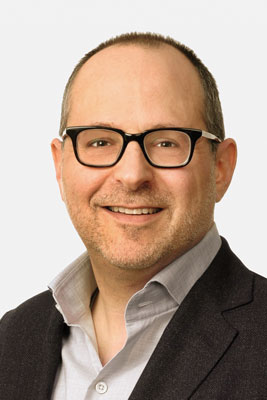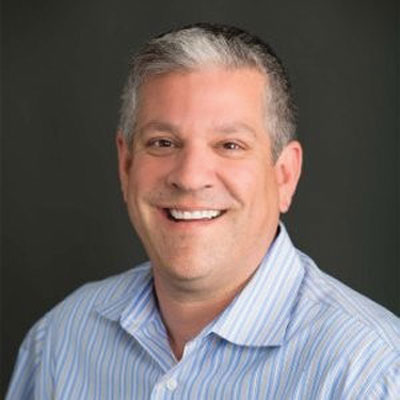
I was in a newsroom late one afternoon in the ’80s, a photographer and a page editor seated around me. Our managing editor came by and said the company was considering mandatory drug testing, with all employees required to give a urine sample. I was on deadline and didn’t look up. The page editor said she thought it was a terrible idea, an invasion of privacy and probably illegal. Our photographer didn’t miss a beat. “Put your hands together. I’ll give you one right now. Drug testing has never been very popular. And in this era of cannabis legalization, it’s confusing to boot. Though in truth it isn’t just drug testing that is a puzzle, most things cannabis are bewildering.
The law and medical cannabis
In the Golden State, the use of marijuana for medical purposes has been legal since Proposition 215 passed in 1996. Adult use of cannabis passed via Proposition 64 in 2016. But the use, production, sale and transportation of weed is still illegal under federal statute. The various taxes on cannabis were going to generate millions in revenues for cities and California—curing all kinds of woes. But the pot of green at the end of the cannabis rainbow has lagged estimates badly.
And of course, those in the cannabis business, unlike almost any other industry you can name, have been begging for regulation to follow. Rules and stipulations vary not just by county, but by each city and town, and sometimes there is even a difference between medical and recreational pot. More confusion.
Another baffler—the feds are still down on marijuana. Unless you’re employed in national security, transportation or aviation sectors, Uncle Sam has no say over whether drug testing is okay, even for federal employees.
And state drug testing laws? Well California recognizes a right to privacy derived from the state constitution, which essentially means an employer has no right to dictate an employee’s behavior outside the workplace. But that doesn’t mean drug testing is illegal. It does however, mean that testing must be judged by balancing an employee’s right to privacy with the employer’s reasons for testing. California courts have ruled that companies can require employees pass a drug test as a condition of employment, as long as the company tests all applicants for that particular position.
That sounds straightforward, after all, those operating heavy machinery or vehicles could pose a danger to themselves as well as others if they were under the influence. Moreover, if an employee under the influence of any drug causes an injury or death, they present a legal risk for their employer. But what about applicants who hold a prescription for cannabis? A job applicant who uses marijuana to treat a specific condition surely must be exempt.
 Not according to the California Supreme Court, which has ruled that employers can legally refuse to hire a prescription holder. “Employers still are not required to accommodate employees with prescriptions for medical marijuana,” says Jennifer Douglas, a partner who focuses on labor and employment law at Dickenson Peatman & Fogarty in Santa Rosa. “Having such a prescription will not protect an employee from being screened out of a job, if the employer has chosen to include cannabis as a prohibited drug. Some states have begun to require employers to reasonably accommodate an employee’s use of cannabis with a prescription. It’s just a matter of time before that is the requirement in California. That being said, employers will never be required to allow employees to be impaired at work.”
Not according to the California Supreme Court, which has ruled that employers can legally refuse to hire a prescription holder. “Employers still are not required to accommodate employees with prescriptions for medical marijuana,” says Jennifer Douglas, a partner who focuses on labor and employment law at Dickenson Peatman & Fogarty in Santa Rosa. “Having such a prescription will not protect an employee from being screened out of a job, if the employer has chosen to include cannabis as a prohibited drug. Some states have begun to require employers to reasonably accommodate an employee’s use of cannabis with a prescription. It’s just a matter of time before that is the requirement in California. That being said, employers will never be required to allow employees to be impaired at work.”
 The courts have frowned upon random drug testing and random checks generally can’t be used with the exception of safety-sensitive positions. In San Francisco, random testing is prohibited by the city. Making the drug testing issue even more difficult is the fact that at the present time, there is no medical test that can prove an employee is high. Current testing can only show that a person’s body has tested positive or negative for THC, or tetrahydrocannabinol, the psychoactive ingredient in cannabis. More troubling is the fact that pot can remain in a person’s body for up to 11 weeks after use, which means that edible you had at your brother-in laws’ birthday party in April is still kicking around. Marc Hauser, co-vice chair of the cannabis law team at Reed Smith, a global law firm headquartered in Pittsburgh with more than 1,700 attorneys, agrees that the world of legalized cannabis, at least in California, is challenging and labor law can be complicated. “Everything about the industry is non-intuitive,” he says.
The courts have frowned upon random drug testing and random checks generally can’t be used with the exception of safety-sensitive positions. In San Francisco, random testing is prohibited by the city. Making the drug testing issue even more difficult is the fact that at the present time, there is no medical test that can prove an employee is high. Current testing can only show that a person’s body has tested positive or negative for THC, or tetrahydrocannabinol, the psychoactive ingredient in cannabis. More troubling is the fact that pot can remain in a person’s body for up to 11 weeks after use, which means that edible you had at your brother-in laws’ birthday party in April is still kicking around. Marc Hauser, co-vice chair of the cannabis law team at Reed Smith, a global law firm headquartered in Pittsburgh with more than 1,700 attorneys, agrees that the world of legalized cannabis, at least in California, is challenging and labor law can be complicated. “Everything about the industry is non-intuitive,” he says.
And of course, legal opinions vary as well. Douglas agrees that the current laws are very confusing. “But I wouldn’t say the regulatory environment has impacted the issues of drug testing in the workplace,” she wrote in an email interview. “I’d say technology has impacted it more. The lack of a readily available, reliable test for cannabis is a larger issue. There are currently no state standards as to what constitutes ‘impaired’ and testing for recent use is extremely difficult and expensive.”
A report by Quest Diagnostics Inc., a large national medical diagnostics company, says positive drug tests in the United States rose by double digits in five of 16 industries and cannabis was the most common drug revealed in those tests. The Drug Testing Index recorded a period from 2015 to 2017 and included data from 10 million tests.
Having said that, Joe Madigan, CEO of Nelson Staffing, says he has seen clients taking a lesser stance around drug testing, as it relates to cannabis. “Our recommendations to clients has been: if you are doing drug testing, have a policy in place as it relates to how they will handle THC in the testing process.”
As if all of that isn’t confusing enough, the current employment market may be shaping the environment as well. According to California Employment Development Department, in March, Marin’s unemployment rate was 2.7 percent, Sonoma was at 3.3 percent and Napa was at 3.5 percent. The labor pool in general has shrunk, which means that North Bay employers have a shallower labor population and could give them pause before they inquire of one of their employees about whether cannabis is on the menu at home. If local companies decided that testing for cannabis is critical for the success of their business, they may find fewer employees willing or even able to pass that test.
The numbers
Thirty-three states across the country allow for the use of medical cannabis. And 10 states and the District of Columbia say that the use of marijuana by adults is legal as well. States that are now considering laws legalizing cannabis include Connecticut, Minnesota, Illinois, New Hampshire, New York, New Jersey, New Mexico and Vermont.
While the rest of the country is making moves toward relaxing cannabis laws, the pressure is mounting for California to get things figured out. The Golden State is regarded by those in the marijuana trade as the largest market in the world. According to a study by Oakland-based ArcView Market Research and BDS Analytics, the value of the pot market this year is $5.1 billion. And Cowen & Co., the only Wall Street investment bank with a cannabis practice, estimates that the value of the U.S. market will eclipse $50 billion by 2026, with California accounting for half that number.
But accurate numbers around the California cannabis industry are hard to come by, in part because the black market is still out performing the legal market. For instance, the California Department of Fish and Game seizures of illegal cannabis in wildlands more than doubled last year, the first year that adult use pot was legal in California. New Frontier Data, a cannabis focused data company, says that better grow techniques and increased demand will likely mean an increase of about half a million pounds of illicit marijuana being grown in California. All of that adds up to lots of people using cannabis in some form, and employers having to decide if that use poses issues for their business.
Pre-employment testing
California courts still permit pre-employment screening but there are several conditions that must be met. The courts have ruled that applicants must be provided written notice of the testing, and the same test must apply to all candidates for that position. Next, the test must be administered by health-care professionals independent of the employer in a private setting, and the results and job applicant’s medical history remain confidential.
The test results and medical information for a job applicant are not furnished direct to the employer, but rather a suitability rating is disclosed which does not name the specific test failed by an applicant. The applicant is told which portion of the test they failed, and they may reapply after a specific length of time.
For those already employed, drug testing must be tied to a “reasonable suspicion” that the employee is under the influence of a drug. Madigan says that employers still have the right to approach an employee they believe is under the influence. “In that way, it’s the same as someone coming to work intoxicated from alcohol,” he says.
Hauser, who operates out of Reed Smith’s San Francisco office and was formerly with GVM in Napa, says that while culturally cannabis use may be making inroads in the U.S., some common-sense behavior is to be expected. “Employers generally are always going to have the right to be sure their employees are not impaired while on the job.” Douglas adds that employers have an obligation to maintain an environment that protects its staff. “An employer’s No. 1 job is to keep its employees safe. Until there is more certainty, I think we will continue to see employers testing, at least in safety sensitive positions.”
Though California was the first state to make the use of medical cannabis legal, other states and even cities have begun making inroads in terms of regulations that are more easily understood by all players. For instance, Douglas points out that New York, Massachusetts, Rhode Island and Connecticut have begun requiring employers to accommodate medical marijuana users in a reasonable manner. In New York City, officials are now considering a law making it illegal to test job applicants for marijuana use.
Even Wall Street is beginning to make a move. Citigroup is now considering changing its standing policy of screening applicants for pot use.
Citigroup’s pondering of a new pot policy is particularly ironic given how frustrated investment banks are on the subject of cannabis. Big players like Goldman Sachs & Co. and Credit Suisse Securities are exasperated that the federal prohibition against cannabis as well as some federal banking laws are keeping them from participating either through financing or investing in the green rush. Led by the Drug Enforcement Agency’s categorizing of cannabis as a Schedule 1 Drug, along with Heroin and LSD, those in the U.S. cannabis sector openly wager on when the prohibition will go away. (A Schedule 1 drug is one that has a high potential for abuse, no current accepted medical treatment in U.S. and a lack of accepted safe use under medical supervision.)
If cannabis became legal under federal law, would that change things here in California? Would employers feel that testing for marijuana was no longer needed? Douglas doesn’t think so. “If it was downgraded, it might cause some employers to stop testing, but I’m not sure it’s a game-changer. Employers who test for cannabis typically do it because they are worried someone may be a heavy user and have concerns that it might impact their ability to do their job consistently and safely. Most employers are not doing so because it is a schedule 1 drug.”
Don’t ask, don’t tell
As a country, we have gone from the 1936 propaganda film Reefer Madness, which showed the use of marijuana as responsible for everything from rape to manslaughter, to Nancy Regan’s famous philosophy of “Just Say No,” to now. A combination of social norms associated with marijuana and confusion over state regs vs. federal law, has opened the door into a new phase for both employers and employees—don’t ask, don’t tell. More than a few companies have adopted an informal policy of not inquiring of their employees about pot in the hopes of not rocking the boat, and not having to worry about cannabis in the workplace. Madigan says protocol has become more casual, regarding the issue of drug testing for cannabis. “It isn’t unusual these days to find a company that does not have a formal drug testing policy, for a variety of reasons,” he says.
 Madigan, whose company has 15 locations up and down the state and has been in business for 50 years, is on to something. NorthBay biz reached out to a trio of companies with significant payrolls and scale. Medtronic, located in Santa Rosa, declined to comment about its drug testing policy or even if one existed. Glassdoor, the online job site and data collection company located in Sausalito, also took a pass when it came to a comment on its drug testing regime. BioMarin, the orphan drug company with offices in San Rafael and Novato, simply didn’t respond to requests for comment on its drug testing.
Madigan, whose company has 15 locations up and down the state and has been in business for 50 years, is on to something. NorthBay biz reached out to a trio of companies with significant payrolls and scale. Medtronic, located in Santa Rosa, declined to comment about its drug testing policy or even if one existed. Glassdoor, the online job site and data collection company located in Sausalito, also took a pass when it came to a comment on its drug testing regime. BioMarin, the orphan drug company with offices in San Rafael and Novato, simply didn’t respond to requests for comment on its drug testing.
Douglas says that locally, don’t ask don’t tell is one path for employers. “Yes, I have definitely seen this,” she says. “In the North Bay we see employers in one of three camps: No testing, testing but not for cannabis, or testing for everything. Company culture and the tight labor market are the driving forces behind which camp an employer chooses.” So, for now, the workplace environment has grown more accepting of the reality that in a state where it is legal to use cannabis, some people are going to inhale, munch and use marijuana in their off hours. This new norm may make employees who use cannabis happy and it may make employers living with that reality uncomfortable.
But as Ms. Douglas points out, testing that reveals whether someone is actually high on weed is not readily available to employers. (Please insert your own Taco Bell joke here.) The thing is, technology seldom takes a long lunch and the day when a test exists that will show if somebody is under the influence of cannabis can’t be too far off. And when that happens, roles will be reversed. Employers will be happy they can ensure their workplace is absent employees who are at one with the cosmos, and employees who are impaired will be the folks who are uncomfortable.
Author
-

Bill Meagher is a contributing editor at NorthBay biz magazine. He is also a senior editor for The Deal, a Manhattan-based digital financial news outlet where he covers alternative investment, micro and smallcap equity finance, and the intersection of cannabis and institutional investment. He also does investigative reporting. He can be reached with news tips and legal threats at bmeagher@northbaybiz.com.
View all posts




